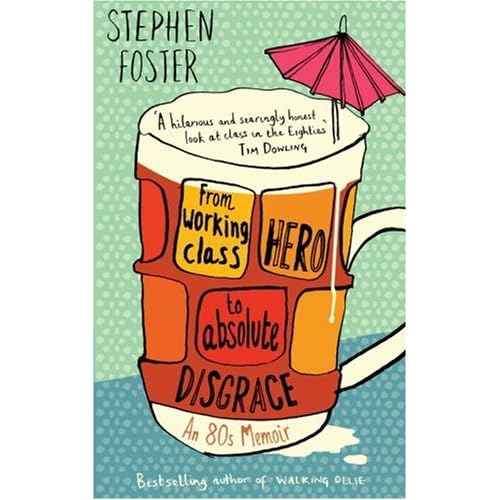
I said I was going to write about it so now that we're on the subject, I may as well get on with it.
We are whatever we are, the sum of our acts and thoughts, but we are also the story we tell about ourselves and our journey through the world. We tell that story to ourselves and to others. We need these stories to lend some sense of continuity, development and sheer meaning to our lives. Others will speak differently about us, as we are well aware, but our story is ours to tell, and may in turn become part of other people's perception of us. Being able to tell our story is partly what we mean when we say we want to be in control of our own lives. We can invent a little, lie a little, add or subtract a little: what matters is that we believe it. As we believe it.
A little irony is generally welcome en route, if only because it enables us to feel the gap between the story and the sheer one-damn-thing-after-another that actually constitutes life. When that gap narrows to almost nothing life can become dangerous. I suspect this was the case with Sylvia Plath, that, in some way, she enacted the life she had written for herself. People begin to believe their myths and start talking in the third person.
It is, of course, the devil to have your story told entirely by others: it is surrendering possession of your own life.
Writing it oneself is, nevertheless, also offering a hostage to fortune. Yesterday, at P and M's,for example, one of the company read a paragraph from the memoir of someone whom half of the company knew and I didn't, but it was clear, even to me, though I was entirely ignorant of the man, that the author was a self-promoting fantasist. In a single paragraph he became the story he told. The man had dug his own grave.
To write a memoir is to assume that your story is worth telling. To do so only at the half way point of life is to suggest that the life has taken some particularly significant turn that has entailed a reviewing and retelling to oneself. That one part of the story is over.
For a writer it is even more than that. It is something to write, to get one's pen around, a project to allow one's story to reach a useful literary form. It becomes part of the ongoing story of which writing itself has become a part.
The project is to entertain and enlighten, to say: I have come so far and this is the record of my journey. This is the voice in which I am telling it. I hope you'll find it's a well-made voice whose company you might enjoy.
*
It is a well-made voice and the company is enjoyable. The first thing to say about the book, and it is one of the most important things to say about any book, is that it is well-written. It glides, it turns, it has a lightness of touch that makes it a pleasure. It isn't earnest, it isn't bombastic, it isn't precious, it isn't vain. It has a very refined feeling for cadence, for tone, for length and density of sentence, for precision of diction, but it doesn't make a fuss about any of this. It has the energy reqired to keep it running. It's very close to just talking but that's the art of it. It has to maintain its credibility with the audience at the outset of the journey (the working class heroes) and to keep it up through all its social twists and turns to the audience at the end (the absolute disgraces.)
We'll give it high marks for that. More next time.

1 comment:
Post a Comment